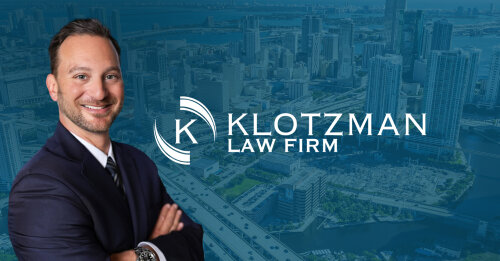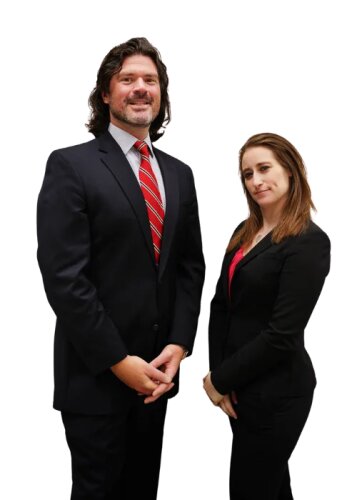Best Commercial Litigation Lawyers in New York
Share your needs with us, get contacted by law firms.
Free. Takes 2 min.
Or refine your search by selecting a city:
List of the best lawyers in New York, United States
About Commercial Litigation Law in New York, United States
Commercial litigation is the legal process of resolving disputes and controversies that arise from business and commercial relationships. In New York, commercial litigation covers a wide range of disputes, including breach of contract, partnership disputes, business torts, real estate conflicts, shareholder issues, and more. The state's complex legal framework and robust business environment make New York a hub for commercial litigation, especially in courts such as the New York State Supreme Court and its Commercial Division, which is specifically designed to handle sophisticated business disputes.
Why You May Need a Lawyer
Commercial litigation can be highly complex, both legally and procedurally. Individuals and businesses may require legal assistance in a variety of situations, including:
- Breach of contract claims, such as failure to fulfill business obligations or payment disputes
- Partnership or joint venture disagreements over management or profit sharing
- Business torts, including fraud, misrepresentation, and unfair competition
- Disputes related to intellectual property, trade secrets, or confidentiality agreements
- Collections and enforcement of judgments
- Real estate disputes involving commercial leases or property sales
- Shareholder and corporate governance disputes
- Complex commercial arbitration or alternative dispute resolution matters
Engaging a qualified commercial litigation attorney can help protect your interests, ensure compliance with local rules, reduce financial risks, and provide guidance through the legal process.
Local Laws Overview
New York's commercial litigation process is governed by a web of state laws, court rules, and unique local practices. Key aspects include:
- Commercial Division of the New York Supreme Court: This specialized court handles complex commercial cases, offering experienced judges and streamlined processes. The Commercial Division has its own rules and procedures that differ from general civil litigation.
- New York Civil Practice Law and Rules (CPLR): The CPLR governs procedural aspects of most commercial lawsuits, including the way cases are initiated, served, discovered, and brought to trial.
- Statute of Limitations: Different commercial claims have varying deadlines to file a lawsuit. For example, breach of contract actions in New York generally have a six-year statute of limitations.
- Business Corporations Law (BCL): This law regulates corporate governance, shareholder rights, derivative actions, and related corporate disputes.
- Alternative Dispute Resolution: New York courts often encourage mediation or arbitration, and many contracts mandate these methods before or in lieu of litigation.
Given the specialized nature of commercial litigation in New York, hiring a lawyer familiar with these local laws is critically important.
Frequently Asked Questions
What is commercial litigation?
Commercial litigation refers to legal disputes that arise from business relationships, contracts, and other commercial transactions, often involving businesses, corporations, or professionals.
Which courts handle commercial litigation in New York?
Most commercial litigation matters are heard in the New York Supreme Court, which is the state’s general trial court. Complex cases may be assigned to the Commercial Division, which focuses exclusively on business disputes.
How long does a commercial litigation case usually take?
The time frame varies widely depending on the complexity of the case, court schedules, and whether parties settle before trial. Some cases resolve within months, while others may take several years.
What are the typical costs involved?
Costs include attorney fees, court filing fees, expert witness expenses, and costs related to document discovery. Some attorneys may work on an hourly basis, a flat fee, or a contingency fee depending on the case.
What is the Commercial Division?
The Commercial Division is a specialized branch of the New York Supreme Court designed to handle complex business disputes efficiently, with judges who have particular experience in commercial matters.
Can commercial disputes be resolved without going to court?
Yes, many businesses resolve disputes through alternative dispute resolution methods such as mediation or arbitration, which can be faster and more cost effective than traditional litigation.
What should I do if I am served with a commercial lawsuit?
Contact a qualified commercial litigation attorney immediately. You must respond within a specific time frame or risk default judgment against you. Early legal guidance is crucial.
Are there specific court rules I need to follow in commercial cases?
Yes, the Commercial Division has its own set of rules in addition to state-wide procedural rules. These include specific requirements for document disclosure, motion practice, and case management.
How are commercial litigation attorneys typically paid?
Payment arrangements vary. Attorneys may charge hourly rates, flat fees, or contingency fees, where the lawyer is paid only if you win your case or settle favorably.
Can I represent myself in commercial litigation?
While individuals are legally allowed to represent themselves, commercial litigation is highly complex. It is strongly advisable to retain experienced legal counsel to avoid costly mistakes.
Additional Resources
If you need more information or support regarding commercial litigation in New York, consider these resources:
- New York State Unified Court System - Commercial Division
- New York State Bar Association
- New York County Lawyers Association
- NYC Small Business Services
- American Arbitration Association
- Legal referral services provided by local bar associations
Next Steps
If you are facing a business dispute or expect to become involved in commercial litigation, it is important to act quickly. Here is how you can proceed:
- Gather all related documents, contracts, and correspondence about your business dispute
- Document key facts and the chronology of relevant events
- Consult with a qualified commercial litigation attorney who practices in New York to discuss your rights and options
- Be mindful of any deadlines, such as those for filing a lawsuit or replying to legal papers
- Consider whether alternative dispute resolution might be appropriate for your case
- Stay informed about the process so you can make decisions with confidence
With the right legal guidance, you can better protect your business interests and navigate the complexities of commercial litigation in New York.
Lawzana helps you find the best lawyers and law firms in New York through a curated and pre-screened list of qualified legal professionals. Our platform offers rankings and detailed profiles of attorneys and law firms, allowing you to compare based on practice areas, including Commercial Litigation, experience, and client feedback.
Each profile includes a description of the firm's areas of practice, client reviews, team members and partners, year of establishment, spoken languages, office locations, contact information, social media presence, and any published articles or resources. Most firms on our platform speak English and are experienced in both local and international legal matters.
Get a quote from top-rated law firms in New York, United States — quickly, securely, and without unnecessary hassle.
Disclaimer:
The information provided on this page is for general informational purposes only and does not constitute legal advice. While we strive to ensure the accuracy and relevance of the content, legal information may change over time, and interpretations of the law can vary. You should always consult with a qualified legal professional for advice specific to your situation.
We disclaim all liability for actions taken or not taken based on the content of this page. If you believe any information is incorrect or outdated, please contact us, and we will review and update it where appropriate.
Browse commercial litigation law firms by city in New York
Refine your search by selecting a city.

















